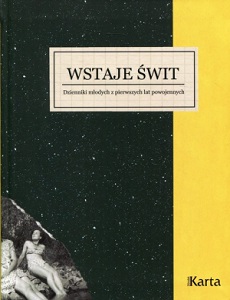
We kindly inform you that, as long as the subject affiliation of our 300.000+ articles is in progress, you might get unsufficient or no results on your third level or second level search. In this case, please broaden your search criteria.

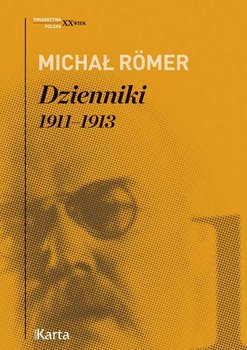
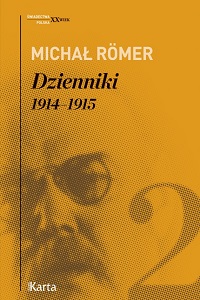
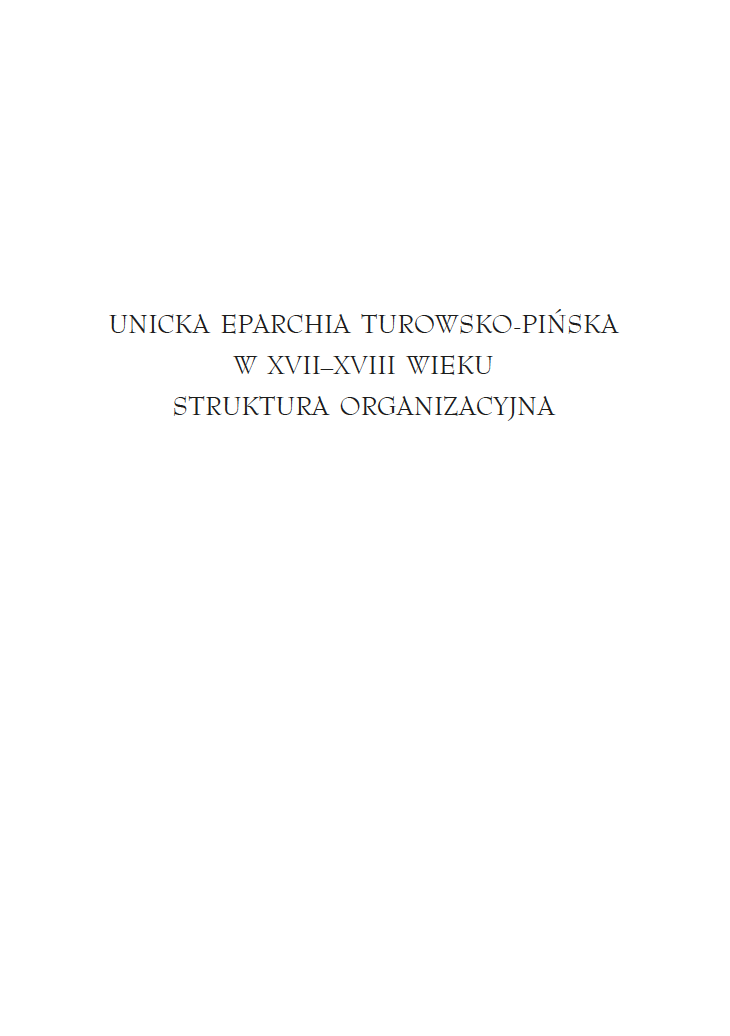
The author of the book examined the organizational structure of theUniate Eparchy of Turov and Pinsk in the seventeenth and eighteenth centuries.He based his works on extensive literature, and above all, on extensive sourcematerial. He based his conclusions on the material acquired in archives andlibraries in Poland and abroad: Vilnius, St. Petersburg, Minsk, Kiev, Lviv,Vatican City, Rome, London and Stockholm. The paper has been divided bythe author into 6 chapters and an introduction.
More...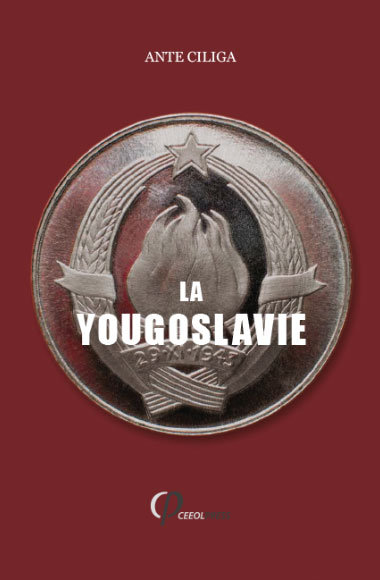
A former member of the Jugoslav Communist Party discusses the Tito-Stalin rupture and attempts to analyze the probable influence on the conflict of the earlier and unresolved struggle between Serb and Croat.
More...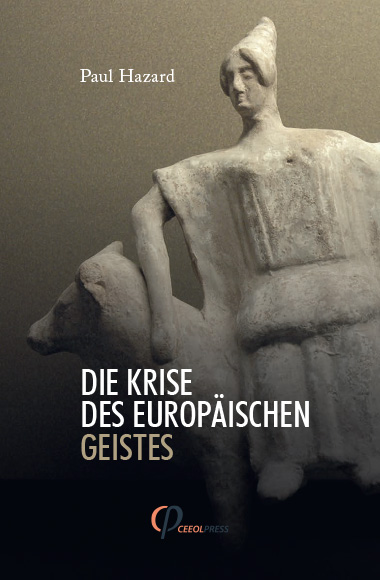
Paul Hazard's intellectual history offers an unforgettable account of the birth of the modern European mind in all its dynamic, inquiring, and uncertain glory. Beginning his story in the latter half of the seventeenth century, while also looking back to the Renaissance and forward to the future, Hazard traces the process by which new developments in the sciences, arts, philosophy, and philology came to undermine the stable foundations of the classical world, with its commitment to tradition, stability, proportion, and settled usage. Hazard discerned at the end of the seventeenth and the beginning of the eighteenth centuries a crisis within the European mind, a moment of profound uncertainty, une zone uncertaine, malaisée. Out of that crisis emerged a new understanding of people and nature, of government, of religion in society which, as he saw it, prepared the way for the French Revolution. At that moment emerged a mentalité discernibly enlightened and modern, one with which Hazard and his generation of liberal French intellectuals could still identify.
More...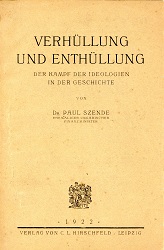
Any formation of thought is considered by Szende as an “Ideology” which exceeds, by interpretation, by conceptual definition, by intellectual converting, and by logical classification, simple human perception. It is the historical role of ideologies to bring individuals or masses, through psychological inducement, to either historical action or to passiveness concerning social order and its conservation or its reform resp. revolution. The main characteristics of ideologies triggering either conservative attitudes and passiveness or reform resp. revolution can be described as “Verhüllung” (disuise) or “Enthüllung” (unveiling). // “It is the essential feature of every revolution and crisis period that the social driving forces, which in less turbulent times are veiled, distorted, whitewashed, impetuously come to the surface from the depths, and are presented to human knowledge in an unadulterated form. Every revolution is the apocalypse of the unconscious, the real agents of events that have not yet been recognized at all or have been recognized in a different way. The potential energies of society - stored up since time immemorial - discharge themselves in grandiose shooting up, creating new things, destroying the old. The rate of the world clock is accelerated. A gigantic film shows the keen eye the biogenetic law of history; every stage of development in human society is shown to us in a flash of lightning.” (Paul Szende)
More...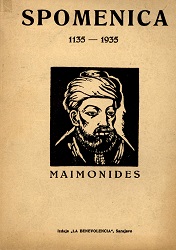
Published in 1935 by the JEWISH CULTURAL AND EDUCATIONAL SOCIETY ,,LA BENEVOLENCIA" in Sarajevo // From the editor’s introduction: „The great thinker, and even greater legislator, Maimonides is the most important spiritual figure among the Jews, because without him one cannot imagine the special spiritual life of the Jewish community, nor the development of certain religious disciplines in general, from the time of his activity until today. // Maimonides, however, is also a very big name in the history of that philosophical and scientific period on the Iberian Peninsula which gave new content and a strong impetus to the thought work of the whole of Europe at that time. Therefore, he belongs to the circle of those medieval thinkers who laid the first foundations of rationalist philosophy in the Renaissance. This assessment of his philosophical appearance gave rise to a huge number of articles and books in which thinkers of all European nations presented the work of Maimonides.“
More...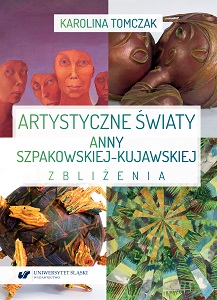
The book Artistic universes of Anna Szpakowska-Kujawska. Close up focuses on lessknown fields of diverse artistic activity of this prominent artist living in Wrocław, such as her participation in Symposium Wrocław’70, ceramic sculptures, Nigerian period (exotic “Calabashes”) and artforms made in Lasowka (painted collages and 3-dimensional Skrzydlaki – “Winged Ones”). The study in six chapters presents characteristic ranges of artistic work of this artist. It allows to set apart the particular specificity of this multimedial art. She holds it in the present discourse clarifying her, still not enough described formal-thematic values as well as a membership of the paradigm of contemporary work.
More...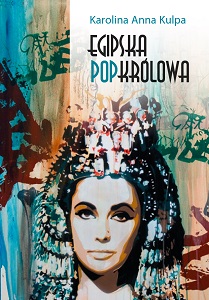
The analysis of the changes in perception of Cleopatra VII Philopator’s image in two- thousand-year reception. The author, discovering subsequent layers of the myth – from a historical figure to the Egyptian Pop Queen – shows that Cleopatra’s image in every historical period depended on current trends. Who was Cleopatra? Was she a godess, a devoted mother, a queen figthing for her state, a ruthless seductress, a monster, an ancien femme fatale, a beauty with the face of Elisabeth Taylor or a woman like many others?
More...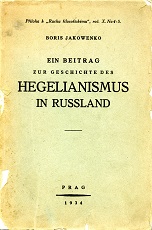
Published in Prague in 1934, the year X of the serial «Přiloha k „Ruchu filosofickému" (The Russian Thought), roč. X. No 4-5.».
More...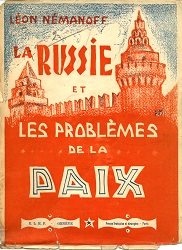
Napoleon said that a country’s foreign policy is determined by its geographical position and its permanent interests. German geopoliticians, led by Haushofer, did not contradict him. If, in our capacity as human geographer, we find the direct relation of the natural environment to politics too summary, by a method capable of sometimes misleading uncritical minds or even of justifying abominable acts, on the other hand, we are ready to follow Léon Némanoff in a similar demonstration, but which does not ignore the human factor and economic influences. // The author of “Russia and the Problems of Peace” is a specialist in Slavic issues, as we had noticed in the heyday of the S. d. N. His training meets scientific requirements. He even manages to remain objective, in dealing with his own country. This is not to say, however, that he will not let his patriotism pierce his words. And M. Némanoff will take us on an astonishing adventure, that of the Russian people. He will make us relive it as he feels it, intensely. Departing with him from the constants of Russian politics, we will watch a historical film which will now unfold logically, the characters of this poignant drama obeying in a way an irresistible imperative.
More...
Transformimi i mësimdhënies nga qasja klasike në qasje online ka qenë sfidë e madhe për stafin mësimor dhe institucionet arsimore. Përpjekje e madhe është bërë në këtë proces përmes krijimit të sistemit të ri të punës dhe është e qartë se këtë sistem do ta zbatojmë në të ardhmen e afërt, të paktën edhe një herë, dhe se ende nuk kemi marrë rezultate konkrete të efikasitetit të tij. Gjatë krijimit dhe zbatimit të këtij sistemi u shfaqën disa sfida - si të kalohet nga klasa klasike në klasë virtuale; si të koordinohet mësimi në kohë reale me mësimin asinkron; dhe si të ndihmonin mësuesit dhe nxënësit në këtë rrugë? Sidoqoftë, sfidë e veçantë ishte vlerësimi i njohurisë. Nëse ndihmat teknike ofruan mundësinë për zbatimin e metodës së re të punës, në vlerësimin e njohurisë bota virtuale vetëm e ndërlikoi situatën. Siç pritej, u krijua varg strategjish dhe ndihmash që synonin të mundësonin teste klasike të njohurisë në botën virtuale, ose të përfitonin nga avantazhet teknike dhe përmbajtja multimediale për t’i bërë testet më të arritshme, efikase dhe interesante. Sidoqoftë, mbeti dyshim si në potencialin për transferimin e njohurive dhe zhvillimin e aftësive në botën virtuale, ashtu edhe në vlerësimin e tij, veçanërisht kur bëhet fjalë për vlerësimin e të kuptuarit. Nëse flasim për lëndën e historisë, veçanërisht në mësimin e temave komplekse, të ndjeshme dhe kontroverse, nevoja për zhvillimin e të kuptuarit të asaj që është mësuar në vend të transferimit të njohurisë është një nga rëndësitë themelore. Përveç pranimit të fakteve, shumë më e rëndësishme është që nxënësi të mund të japë shpjegim, të gjejë dëshmi dhe të japë shembull, të thjeshtojë, zbatojë (gjejë përdorim), të përdorë analogjinë dhe ta paraqesë temën në mënyra të reja. Ky manual u krijua me idenë për të siguruar një pasqyrë të sfidave dhe metodologjive në mësimin e historisë online, me qëllim të vlerësimit të njohurive të bazuara në rezultate dhe vlerësimit të njohurisë në mësimin e historisë që synonë të kuptuarit. Autorët shpresojnë që të paktën të lehtësojnë punën sfiduese të mësuesve të historisë dhe edukatorëve të tjerë të historisë.
More...
Shpërthimi i pandemisë COVID-19 ka sjellë mbylljen ose zvoglimin e ngarkesës së punës në shkollat malazeze. Si vijën e parë të mbrojtjes, Ministria e Arsimit ka krijuar udhëzimet bazë dhe një platformë online për mësimin në distance në shkollat fillore dhe të mesme. Baza e mësimit elektronit ishte e përbërë nga mësimi nëpërmjet videove, të cilat kan zgjatur 15 minuta dhe të cilat ne fund u renditën në një baze të dhënash në një platforme krijuar veçmas. Këto aktivitete dhe përpjekja e madhe e stafit arsimor, siguruan vazhdimëshinë e procesit arsimor. Megjithatë, kjo nuk do të thotë se ky lloj i mësimit nuk ka sfida të caktuara. Para se gjithash, udhëzimet e Ministrisë të Arsimit ishin të kufizuara. Ministria e Arsmit në një liste të shkurtër ka japur temat prioritare që do të mbulojë secila lënd. Mësimdhënësit nuk fituan as udhëzime mbi metodologjinë mësimore online që do t›i ndihmonte ata të transferojnë njohuritë ne mënyrë me efektive, as për metodologji të mësimit në distancë që do i ndihmonte nxënësit të zhvillojnë kompetenca. Gjithashtu mësimdhënësit nuk fituan as udhëzime për metodologjinë e vlerërismit të nxënësave dhe rezulatet e mësimit duke përdoruar mjete të reja. Aspekti i fundit është veçanarisht problematik, sepse jo të gjithë nxënësit kanë qasje të barabarta në materialin online, ndërsa mësimdhënësit duhen të sigurojne që ata mos te heqin dorë nga procesi arsimor dhe plani i përcaktuar. Gjithashtu, i gjithë materiali arsimor u regjistrua në kryeqytetin e Podgoricës. Mësimi online ne lënden e historisë i ka dhënë përparësi temave të njohurive të përgjithshme, duke kufizuar përpjekjet e mësimdhënësve për të mësuar tema të ndjeshme dhe kontroverse, si për shembull çështjen e pakicave, ose ato tema që zhvillojnë të menduarit kritik dhe analizën. Edhe pse kalimi në mësimdhënie të plotë ose të pjesshme ishte pjesë e masave emergjente gjatë pandemisë COVID-19, kjo gjithashtu duhet parë si një mundësi për përfshirje më të madhe të teknologjive të reja në procesin arsimor. Për ta arritur këtë, vetë mësimi duhet të bëhet më gjithëpërfshirës, me më shumë staf mësimor të trajnuar dhe të fuqizuar për të menduar në atë drejtim dhe për të përshtatur përdorimin e mjeteve online me nevojat e grupit të tyre nxënësor. Projekti “Mësimdhënia e Historisë gjatë Pandemisë COVID 19 - qasje e barabartë për të gjithë”, i zbatuar nga QAQ me mbështetjen financiare të Qeverisë së Republikës Federale të Gjermanisë, tenton t’u sigurojë mësimdhënësve malazezë mjete mësimore dhe trajnime online, me qëllim që t’ia mundësojn atyre që të përmbushin rezultatet e mësimit të përcaktuara në kurrikulën kombëtare por gjithashtu të mundësojnë më shumë zëra dhe përgjigje ndaj nevojave arsimore lokale. Kjo metodologji është rezultat i përfshirjes së asaj përvoje, por edhe përvojës dhe këshillës së kolegëve që morën pjesë në procesin e zhvillimit të materialit mësimor shtesë në internet dhe seminareve shoqërues, për të cilët autorët janë jashtëzakonisht mirënjohës. Me dëshirën e sinqertë për ta kthyer procesin arsimor në kuadrin e rregullt sa më shpejt që është e mundur, ne shpresojmë që materialet dhe metodologjitë mësimore të zhvilluara do të përdoren nga mësimdhënësit e historisë dhe lëndëve shoqërore në punën e ardhshme, por edhe në zhvillimin e mëtejshëm profesional.
More...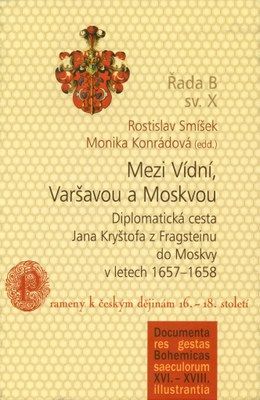
The edition presents letters and other documents relating to the diplomatic mission of Johann Christoph of Fragstein and Christoph Beuer von Binnen to Moscow between 1657 and 1658. Fragstein was a long-term resident in the Rzeczpospolita. His mission to Moscow sought to mediate in the international conflict between the Rzeczpospolita, Sweden, and Russia over the Cossack rebellion of Bogdan Khmelnitsky. The mission was concerned mainly with the hierarchical positions of the Emperor and the Tsar. The editors focuse mainly on anthropological observations of the travellers in Russia. This issue is discussed in the introductory essay. The edition includes the Imperial instruction and letters for aristocrats and Emperor Leopold I. The diplomatic reports and letters are written in German, but the introductory essay and comments are written in Czech. The e-book does not include pictures.
More...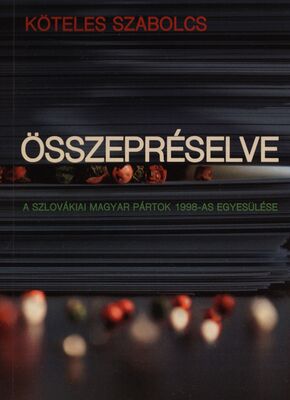
The author argues that the unification of the three Hungarian parties in Slovakia in 1998 was brought about by external pressure (the new autocratic electoral law): the parties would not have united on their own, and once the external pressure was removed, the agreement dissolved.
More...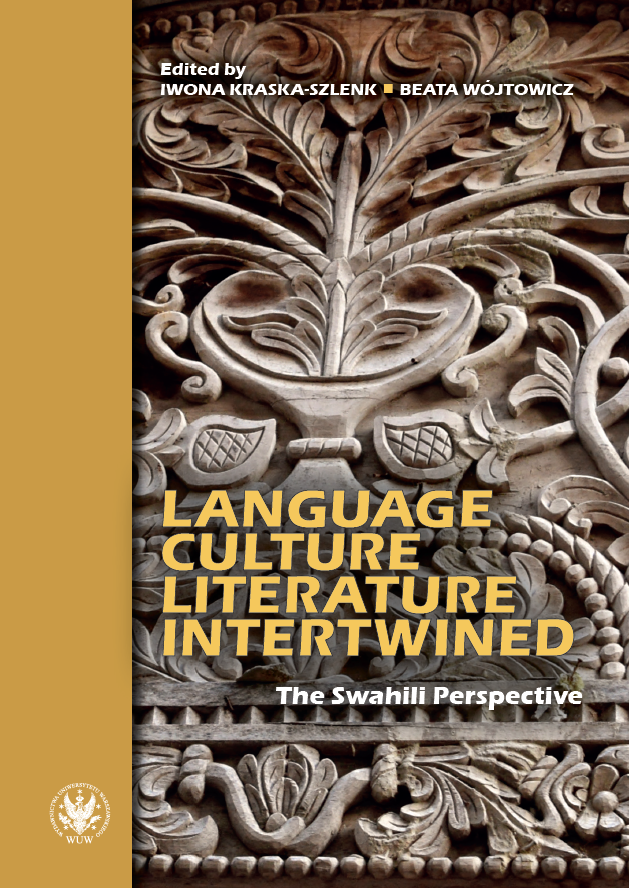
Swahili is recognized as an important international language and ranks first among African languages taught to foreigners. This publication presents Swahili in its cultural setting by discussing selected issues pertaining to social values reflected in language usage and literary tradition, as well as issues of modern terminology and pragmatics. All contributions contain original and novel proposals, showing that the interdependence between language and culture can take many forms and can be analyzed from various perspectives.
More...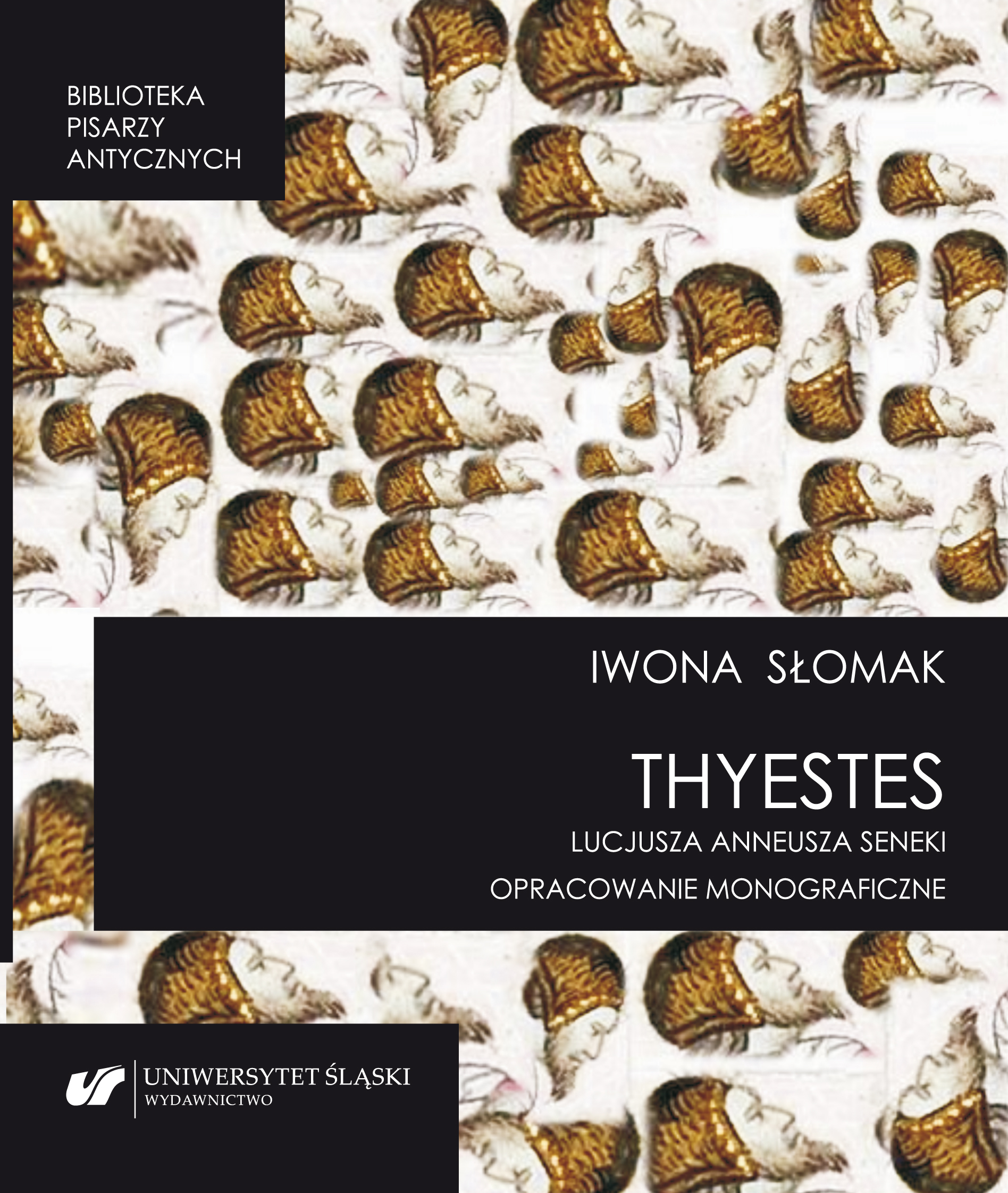
"Thyestes", to which this monograph is devoted, exhibits all the characteristics of the Senecan plays that facilitate the centuries-long interest in them on the part of scholars and lovers of literature. They are also responsible for the distinctiveness of the author’s work against the background of Greek tragedy — due to the philosophical-critical nature of the work, they disengage from a directly didactic tone in favor of provocation and irony, the potential to engage less with the emotions and more with the intellect of the audience. It is possible to also find here examples of Seneca’s characteristic semantic and formal solutions, which confirm the dynamic development of the genre in Antiquity and at the same time may seem fairly modern today.
More...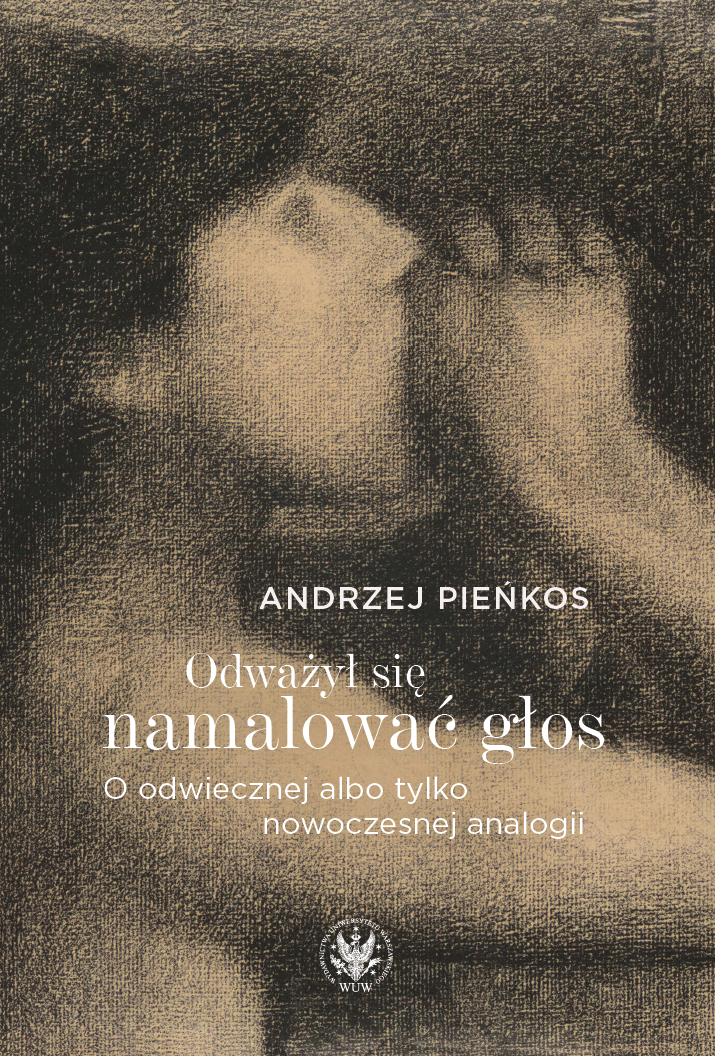
The author proposes reflections on the relations of music and the world of sounds with visual arts – painting, graphics and sculpture – as a description of an impossible alliance. Avoiding an unambiguous answer, he discusses the search for such relations, their artistic, social and personal circumstances, which allow us to understand the paradox of art and the essence of modernity more fully.
More...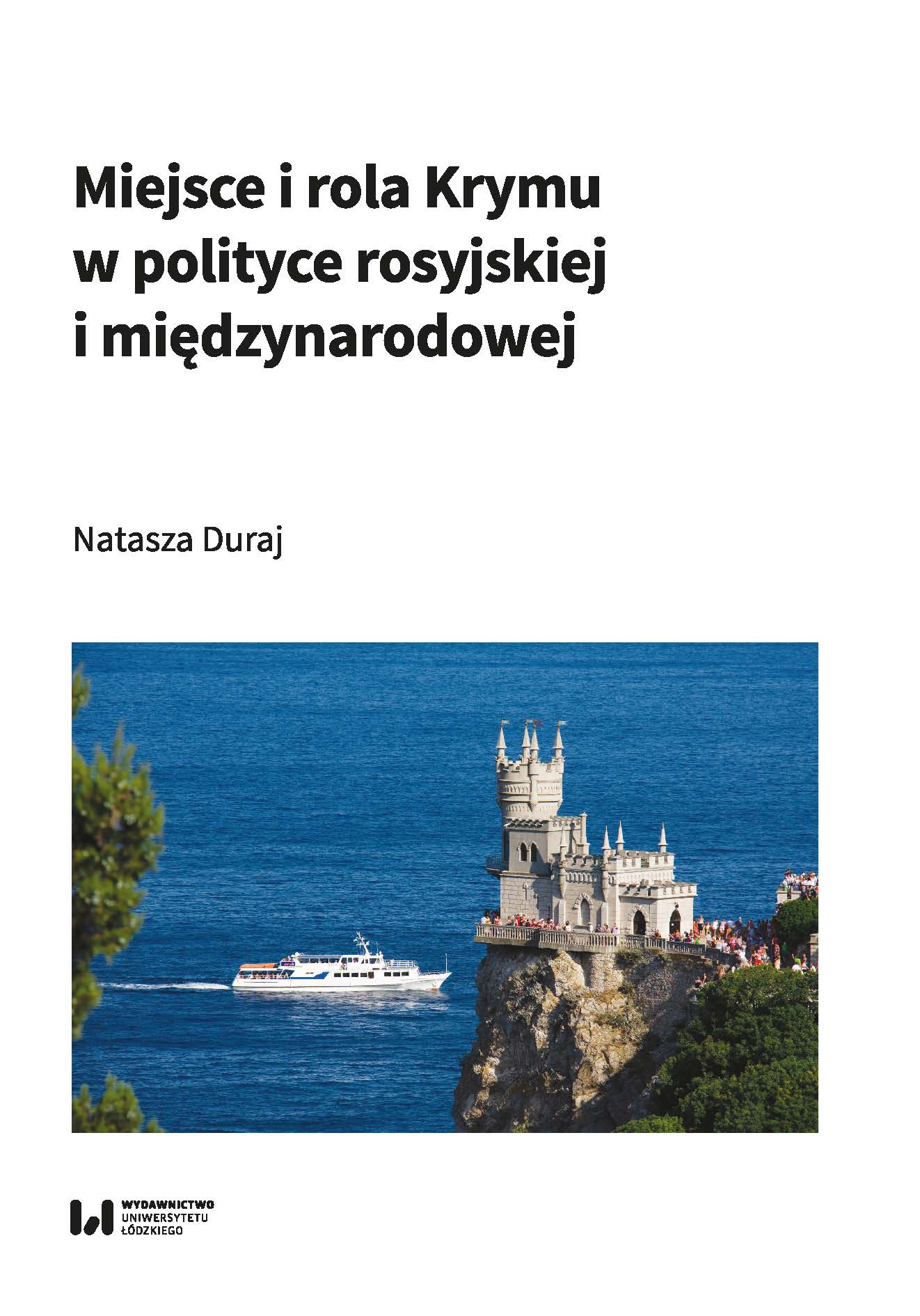
The main goal of the monograph is to present the place and role of Crimea in Russian and international politics. The work also presents the issues of economic and social development of the Crimean Peninsula. The work uses sources from disciplines such as general history, economic history, political science, geography, sociology, archeology and political economy.
More...